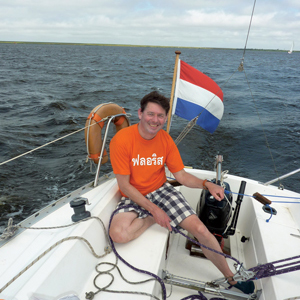 How many wake-up calls does the world need?
How many wake-up calls does the world need?‘The year 2006 started with conflict between Russia and Ukraine about supplying gas to the latter. The year 2007 started with a similar battle between Russia and Belarus about oil and Russia shut down the pipeline which transports oil to the rest of Europe.’ That is how my publisher’s note started in our January/February 2007 issue… 15 years later, Russia/Putin has invaded Ukraine and history is repeating itself.
Since 2007, the wind energy industry has seen tremendous growth and a declining levelised cost of electricity. However, the European Union (EU) still relies on imports for 90% of its gas, with 40% of that coming from Russia. The Russian invasion of Ukraine painfully shows that Europe did not act fast enough to become energy independent. The current crisis highlights that Europe should be energy independent as soon as possible and renewables/wind energy can play an important role in this. While Europe will most likely continue to rely on natural gas for many years to come, increased use of renewables will reduce Europe’s reliance on the fuel. This could make it easier to obtain gas from countries other than Russia.
Just before this issue went to the printer, the European Commission (EC) proposed an outline of a plan to make Europe independent from Russian fossil fuels. According to the EC, phasing out our dependence on fossil fuels from Russia can be done well before 2030. To do so, the Commission proposes to develop a REPowerEU plan that will increase the resilience of the EU-wide energy system based on two pillars: 1) diversification of gas supplies via higher liquefied natural gas and pipeline imports from non-Russian suppliers and larger volumes of biomethane and renewable hydrogen production and imports; 2) a faster reduction in the use of fossil fuels in our homes, buildings, industry, and power systems by boosting energy efficiency, increasing renewables and electrification, and addressing infrastructure bottlenecks.
Also, the International Energy Agency has released a plan to reduce the EU’s reliance on Russian natural gas. This 10-point plan includes a range of complementary actions that can be taken in the coming months, such as turning more to other suppliers, drawing on other energy sources, and accelerating efforts to provide consumers, businesses and industry with the means to use clean and efficient alternatives to natural gas. Point 4 of the plan calls for accelerating the deployment of new wind and solar projects. To speed up wind and solar energy requires the clarification and simplification of responsibilities among various permitting bodies, the building up of administrative capacity, clear deadlines for the permitting process, and digitalisation of applications.
Permitting certainly remains the main bottleneck. Almost none of the member states meet the deadlines for permitting procedures required in the EU Renewable Energy Directive. The permitting rules and procedures are too complex and permitting authorities are not always adequately staffed.
So, if you ask me, the development of renewables, including renewable hydrogen, and any other (future) carbon-free technologies should be a priority and must be accelerated not only in Europe but in the whole world. Let the current crisis be the final wake-up call, and let’s work towards energy independence and peace.
Enjoy reading,
Floris Siteur
Publisher
Publisher
